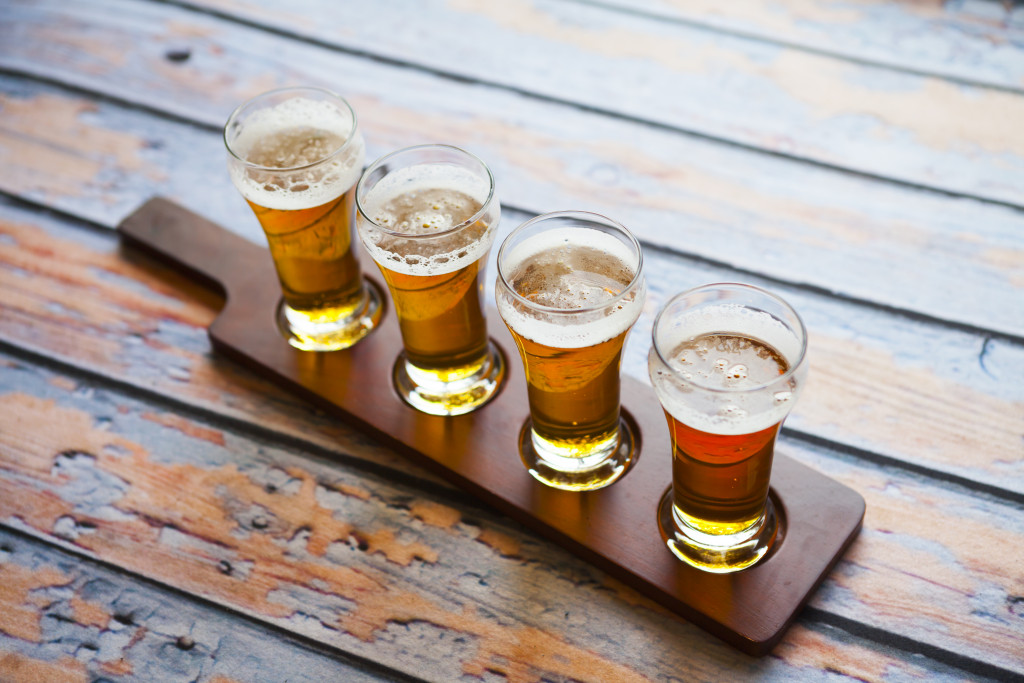Technology has drastically changed the brewing industry over the past few decades. The industry has reached a net worth of $30 billion, gradually increasing. In addition, technology has played a vital role in improving efficiency, quality control, and safety from large-scale production to small-batch craft breweries. Here are five ways that technology has improved breweries.
Automation
Gone are the days of manual brewing processes. Automation allows breweries to produce beer faster and with less human error. Here are some things that automated systems can do in brewing.
Mashing
The mashing process is about converting the starches in grains into sugars that the yeast can eat for fermentation. Automated systems can accurately control temperature and stirring, resulting in a more consistent batch of beer.
Boiling
Automated boilers can heat wort (the sugary liquid extracted from mashing) to precise temperatures and maintain those temperatures during the boiling process. This ensures an evenly boiled batch of beer.
Fermentation
Automated fermentation tanks can precisely control temperature and stirring, leading to a more consistent and controlled fermentation process.
Filtration and carbonation
Automated filtration systems can filter out solids from the beer before it is carbonated, resulting in a more precise finished product. In addition, automated carbonation systems ensure an evenly carbonated batch of beer.
Packaging
Cans, bottles, kegs – automated systems can package beer quickly and accurately, reducing waste and increasing efficiency.

Quality Control
Breweries rely on technology for quality control at every stage of the brewing process. From raw materials testing to final product analysis, technology helps brewers ensure that their beer is safe to drink and meets all regulatory requirements. In addition, quality control is crucial for large-scale production breweries that need to maintain a consistent product across thousands of bottles or cans.
Safety
Technology has also made brewing safer for both workers and consumers. For example, automated systems help reduce the risk of injuries in the brewery by eliminating manual tasks. There are also newer technologies that increase safety in breweries. Here are some of them.
UV Fermentation
This technology uses ultraviolet light to kill harmful bacteria in the fermentation tanks, ensuring greater consumer safety. It’s also great for breweries producing sour beers, as it can eliminate the need for the traditional and risky barrel aging process.
CIP systems
CIP, or Clean-in-Place systems, use automated cleaning processes to ensure that all equipment used in brewing is adequately cleaned and sanitized before each batch. This helps prevent contamination and provides a safe product for consumers.
Valve Testing
Valves are crucial for controlling the flow of liquids in brewing processes. Improved valve testing equipment can detect and fix faulty valves, preventing spills or other accidents in the brewery. Additionally, this also gives accurate readings for a better fermentation process.
Foam Detection
Foam in beer can indicate a problem with the brewing process or the finished product. New technology can detect foam levels in beer, allowing brewers to quickly address any issues and prevent foamy batches from reaching consumers.
Energy Efficiency
Breweries are energy-intensive businesses, so they need to use energy-efficient technologies whenever possible. Here are some energy options for improving energy efficiency in breweries.
Solar Energy
Coal has grown expensive throughout the years because of various reasons. First, it’s nonrenewable. And second, it’s harmful to the environment. This is why more and more breweries are turning towards renewable energy sources for their energy needs, such as solar panels. In addition, it has grown much cheaper, making it an excellent option for any brewery.
Energy-Efficient Equipment
Breweries can also save energy by investing in energy-efficient equipment, such as boilers and refrigeration units, or using more innovative controls to regulate temperature and energy usage.
Sustainability
Technology is also playing a role in making breweries more sustainable businesses. For example, some breweries use spent grain from brewing to create animal feed or compostable packaging material. As stated earlier, others use solar panels or wind turbines to generate renewable energy for their operations. As more breweries adopt sustainable practices, they’ll be able to reduce their environmental impact and operate more responsibly. But one of the most significant ways breweries become sustainable is through water conservation.
Water Conservation
Breweries use large amounts of water for their processes, so they need to conserve water whenever possible. This can be done through equipment upgrades, such as high-efficiency boilers and more efficient cleaning processes. Breweries can also recycle wastewater in other parts of their operations, such as for cleaning equipment or landscaping.
Technology has significantly impacted the brewing industry. However, as technology continues to evolve, many people expect that it will improve throughout the years. This is good news for the industry and many entrepreneurs who want to start a business.
